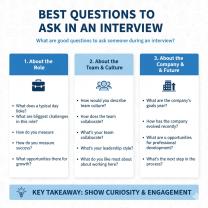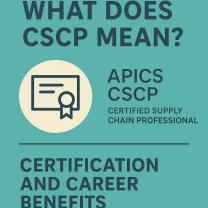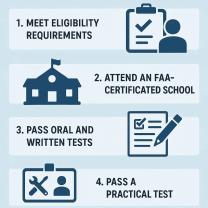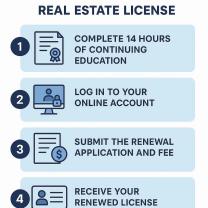When do I need a CMT certificate?
A CMT (Chartered Market Technician) certificate is relevant if you work with financial markets and technical analysis. Here’s a detailed explanation:
When You Need a CMT Certificate
Professional Career in Technical Analysis
If your job involves analyzing price charts, trends, and market patterns to make investment decisions.
Common roles: technical analyst, portfolio manager, trader, risk manager, financial advisor.
Career Advancement
Employers may prefer or require the CMT designation for higher-level positions in investment firms, hedge funds, or brokerage houses.
It demonstrates proficiency in technical analysis, giving you credibility in the financial industry.
Professional Recognition
Even if not strictly required, a CMT certificate can differentiate you from peers and enhance your professional reputation.
Continuous Learning
If you want to formalize and validate your technical analysis knowledge, the CMT program provides structured learning and exams.
When You Don’t Need a CMT Certificate
If your role focuses on fundamental analysis, accounting, compliance, or other non-technical aspects of finance, the CMT is not mandatory.
Entry-level positions in finance often do not require a CMT—experience and other certifications like CFA may be sufficient.
The term "CMT certificate" can refer to two distinct professional designations:
Chartered Market Technician (CMT): This is a globally recognized credential for financial professionals specializing in technical analysis of financial markets.
Certified Medication Technician (CMT): This is a certification for healthcare professionals who administer medications, primarily in long-term care settings, and its requirements are state-specific.
Given the typical context of financial and career inquiries, this response will focus primarily on the Chartered Market Technician (CMT) designation. Information on the Certified Medication Technician (CMT) will be briefly included where relevant, highlighting the distinction.
When a CMT Certificate Is Required
The Chartered Market Technician (CMT) designation is not typically "required" by law for specific job functions, unlike some other financial licenses (e.g., Series exams for brokers). Instead, it is a voluntary professional certification that demonstrates specialized expertise in technical analysis.
Individuals pursue the CMT charter to:
Enhance Credibility: It signals to employers and clients a mastery of technical analysis, ethical standards, and a commitment to the discipline.
Differentiate Themselves: In competitive financial fields, it can set a professional apart from peers who may only focus on fundamental analysis.
Career Advancement: Holding the CMT can open doors to roles such as:
Portfolio Managers
Investment Strategists
Hedge Fund Managers
Market Research Heads
Investment Advisors
Traders
Equity Research Analysts (especially those incorporating technical views)
FINRA Exemption: Successful completion of the first two levels of the CMT examination program is accepted by the Financial Industry Regulatory Authority (FINRA) as an alternative to the Series 86 examination for technical analysts (though the Series 87 is still required for regulatory understanding).
For a Certified Medication Technician (CMT): This certification is typically required by state regulations for healthcare support staff (e.g., Certified Nursing Assistants) to administer medications in certain healthcare facilities, particularly nursing homes and assisted living facilities. Requirements vary by state (e.g., Missouri, Maryland, New Jersey all have distinct CMT programs).
Eligibility Criteria for Obtaining a CMT Certificate
To obtain the Chartered Market Technician (CMT) designation, candidates must meet several key eligibility criteria set by the CMT Association:
Education: While there are no formal educational prerequisites to sit for the CMT exams, a bachelor's degree (four-year university degree) is required to be awarded the official CMT charter. The degree does not need to be in finance or a related field, but a strong understanding of financial concepts, analytical, and math skills is beneficial.
Examinations: Candidates must successfully pass all three levels of the rigorous CMT exam. The exams must be taken in sequential order (Level I, Level II, Level III).
Professional Experience: Candidates must accrue at least three years of relevant professional work experience in the investment industry. This experience should involve the application of technical analysis or a strong understanding of financial markets. This work experience can be gained before, during, or after passing the exams, but it must be verified before the charter is awarded.
Membership & Ethics: Candidates must become a Professional Member of the CMT Association (which requires annual dues) and agree to abide by the CMT Association's Code of Ethics and Standards of Professional Conduct. Professional membership typically requires sponsorship by three individuals who hold CMT Association membership status, with only one allowed to be from the candidate's current employer.
For a Certified Medication Technician (CMT): Eligibility usually includes:
Being a Certified Nursing Assistant (CNA) with a certain period of active experience (e.g., 6 months).
Being at least 18 years old.
Having a high school diploma or GED.
Successfully completing a state-approved medication technician training program (classroom and clinical hours).
Passing a state-administered written and practical examination.
Obtaining a letter of recommendation from an employer.
Steps to Apply for the Certificate
The application process for the Chartered Market Technician (CMT) designation generally involves these steps:
Assess Eligibility: Confirm you meet the educational requirements (or will meet them by the time you apply for the charter) and have an understanding of the work experience requirement.
Enroll in the CMT Program: Register for the CMT program through the CMT Association's official website. This typically involves paying an enrollment fee.
Register for and Pass Level I Exam:
Study for Level I (recommended 80-120 hours).
Register for the Level I exam. Exams are computer-based and offered twice a year (typically June and December).
Pass the Level I exam. This level focuses on fundamental concepts and terminology of technical analysis.
Register for and Pass Level II Exam:
Study for Level II (recommended 100-140 hours).
Register for the Level II exam. This level focuses on applying technical analysis techniques.
Pass the Level II exam.
Register for and Pass Level III Exam:
Study for Level III (recommended 120-160 hours).
Register for the Level III exam. This level requires candidates to integrate knowledge from previous levels and apply it to case studies, providing recommendations and justifications.
Pass the Level III exam.
Gain Required Work Experience: Ensure you have completed or are in the process of completing the three years of relevant professional work experience.
Apply for Professional Membership: Once all three exam levels are passed, apply for Professional Membership with the CMT Association. This involves providing details of your work experience and securing the required sponsors.
Agree to Code of Ethics: Commit to abiding by the CMT Association's Code of Ethics and Standards of Professional Conduct.
Receive Charter: Upon approval of your membership and verification of all requirements, the CMT charter will be awarded.
The total time to complete the CMT certification can range from 1.5 to 3 years, depending on how quickly you pass the exams and accrue work experience.
Benefits of Holding a CMT Certificate
Holding the Chartered Market Technician (CMT) certificate offers several distinct advantages in the financial industry:
Specialized Expertise: It provides deep knowledge in technical analysis, including chart pattern identification, indicators, trading strategies, and risk management based on market behavior.
Enhanced Credibility and Recognition: The CMT is the highest global designation for technical analysis, signaling a high level of expertise and professionalism to employers, clients, and peers worldwide.
Career Differentiation: In a field often dominated by fundamental analysis, the CMT offers a unique skill set and a "different lens" for market assessment, making charterholders stand out.
Career Advancement: CMT charterholders often report promotions and increased responsibilities, including managing larger assets. The median salary for CMT charterholders can be highly competitive.
Versatility in Roles: The skills gained are applicable across various roles such as portfolio management, trading (proprietary and execution), market strategy, and investment advisory.
Networking Opportunities: Membership in the CMT Association provides access to a global network of like-minded professionals, offering valuable collaboration and career opportunities.
Professional Development: The program provides a structured approach to learning sophisticated analytical techniques and an ethical framework for practice.
FINRA Exam Exemption: As noted, passing Levels I and II offers an exemption from the FINRA Series 86 exam for technical analysts.
Renewal and Continuing Education Requirements
For the Chartered Market Technician (CMT) designation, the CMT Association does not currently require continuing education credits (CECs) to maintain the charterholder status or membership.
However, the CMT Association strongly encourages its members and charterholders to engage in ongoing professional development and lifelong learning to stay current with market changes and evolving technical analysis techniques. This can include:
Attending industry conferences and summits (like the CMT Global Investment Summit).
Participating in local CMT chapter meetings.
Reading academic research and industry publications.
Utilizing the educational resources provided by the CMT Association.
For a Certified Medication Technician (CMT): Renewal requirements are typically mandated by the state licensing board and often include:
Completion of a certain number of continuing education hours (e.g., 10 hours every two years in New Jersey, or a minimum of 30 CECs every three years with specific core area requirements for the healthcare documentation CMT).
Maintaining an active underlying certification (e.g., CNA status).
Completing a clinical update or review course.
Submitting a renewal application and associated fees.
Some states may also require ongoing practice hours in medication administration.Failure to meet renewal requirements can result in lapsed certification, requiring re-examination to regain status.











